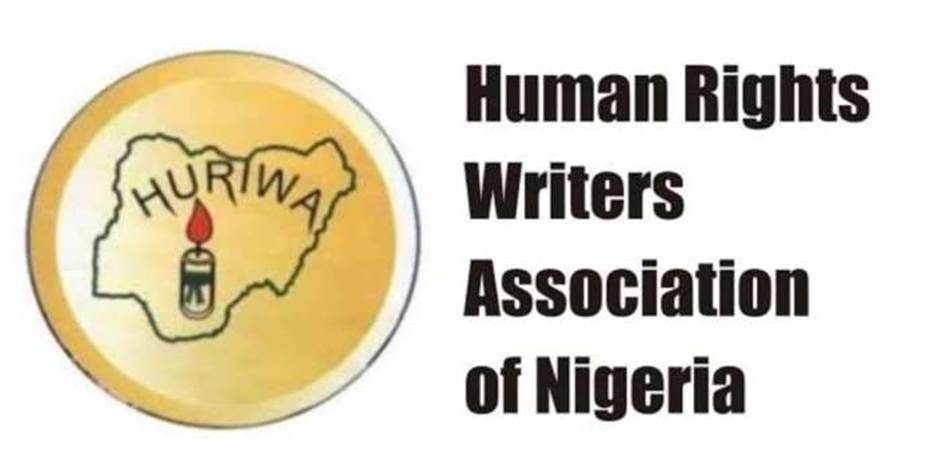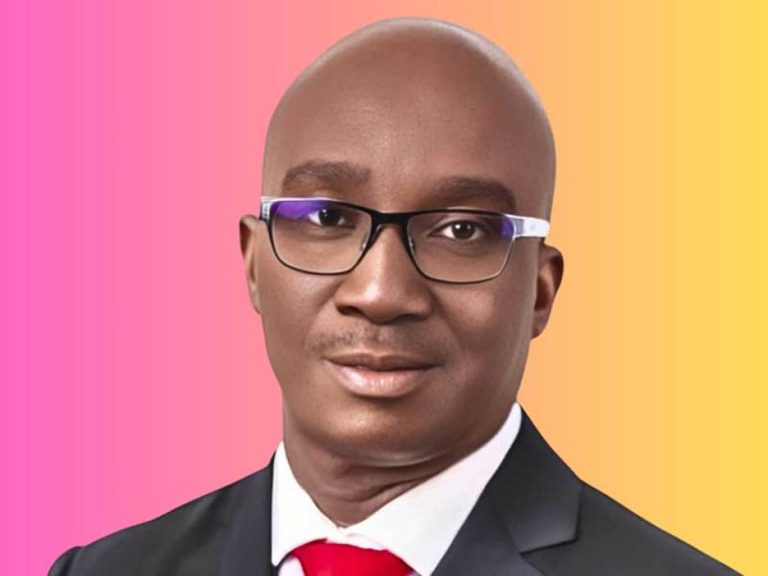
The Human Rights Writers Association of Nigeria (HURIWA) has expressed deep concern over increasing market fires and demolitions by the Lagos State government which seemed to economically or socially alienate a particular ethnic group, warning that the development has created a perception of selective enforcement and economic targeting of Igbo traders.
HURIWA’s reaction came on the heels of Tuesday’s Alaba International Market, Ojo fire which razed several warehouses and shops and destroyed billions of naira worth of goods.
Warning that the trend poses a grave threat to national unity and economic stability, HURIWA, in a statement issued in Abuja on Wednesday, described the Alaba fire as “a tragic addition to the growing list of incidents undermining the economic base of a specific segment of Nigerians in Lagos.”
The group called for an independent investigation to determine the cause of the fire and assess the response time of relevant emergency agencies.
HURIWA noted that the Alaba fire came just weeks after the Lagos State Government carried out large-scale demolitions at the Lagos International Trade Fair Complex in Ojo, despite widespread public condemnation and appeals for dialogue with affected traders.
Similar demolitions have also been reported in Alaba Rago, Abule Ado, and parts of Ikota and Lekki, where several businesses owned by Nigerians of southeastern origin were destroyed.
According to HURIWA, these repeated incidents had created a perception of selective enforcement and economic targeting, particularly against Igbo traders, and had deepened ethnic mistrust in the state.
The association warned that such actions, whether deliberate or coincidental, had the potential to inflame ethnic tension and should be addressed with urgency and transparency.
“HURIWA has consistently maintained that Lagos remains Nigeria’s commercial capital — a city built by diverse peoples whose contributions sustain its growth,” the statement read.
It added: “Any attempt, direct or indirect, to economically or socially alienate a particular ethnic group in Lagos is unconstitutional and unacceptable.”
The rights group also recalled previous statements and incidents that had contributed to ethnic polarisation in the state, including a controversial social media post by presidential aide Bayo Onanuga during the 2023 general elections, which told Igbos to “stay away from Lagos politics,” and threats made by Lagos NURTW chairman, Alhaji Mustapha Adekunle, popularly known as “Sego,” warning that non-supporters of the ruling party would be dealt with in 2027.
HURIWA called out the security agencies for failure to decisively address such inflammatory rhetoric, describing it as “a dangerous double standard that encourages hate speech and undermines Nigeria’s constitutional democracy.”
It called on the Department of State Services (DSS) and the Nigeria Police Force to ensure that all citizens, regardless of political affiliation or ethnic identity, were protected equally under the law.
The association further urged Governor Babajide Sanwo-Olu to publicly reassure Lagos residents that no section of the state would be subjected to targeted economic policies or selective enforcement of urban regulations.
It called for a transparent review of recent demolitions and for compensation to be paid where legitimate businesses were affected without due process.
HURIWA emphasised that the real indigenes of Lagos (known historically for their openness and hospitality) had always coexisted peacefully with other Nigerians, and that current tensions were being fuelled by political actors who “seek to divide the city for selfish ends.”
“Lagos has always been a model of inclusion,” HURIWA stated.
According to the group: “Those attempting to rewrite that heritage through divisive policies or political vendetta are endangering not only the state’s economy but also Nigeria’s fragile unity.”
The group reiterated its call for the Federal Government, the National Human Rights Commission, and the National Assembly to monitor developments in Lagos closely and intervene where necessary to ensure the protection of citizens’ rights and property.



